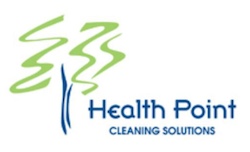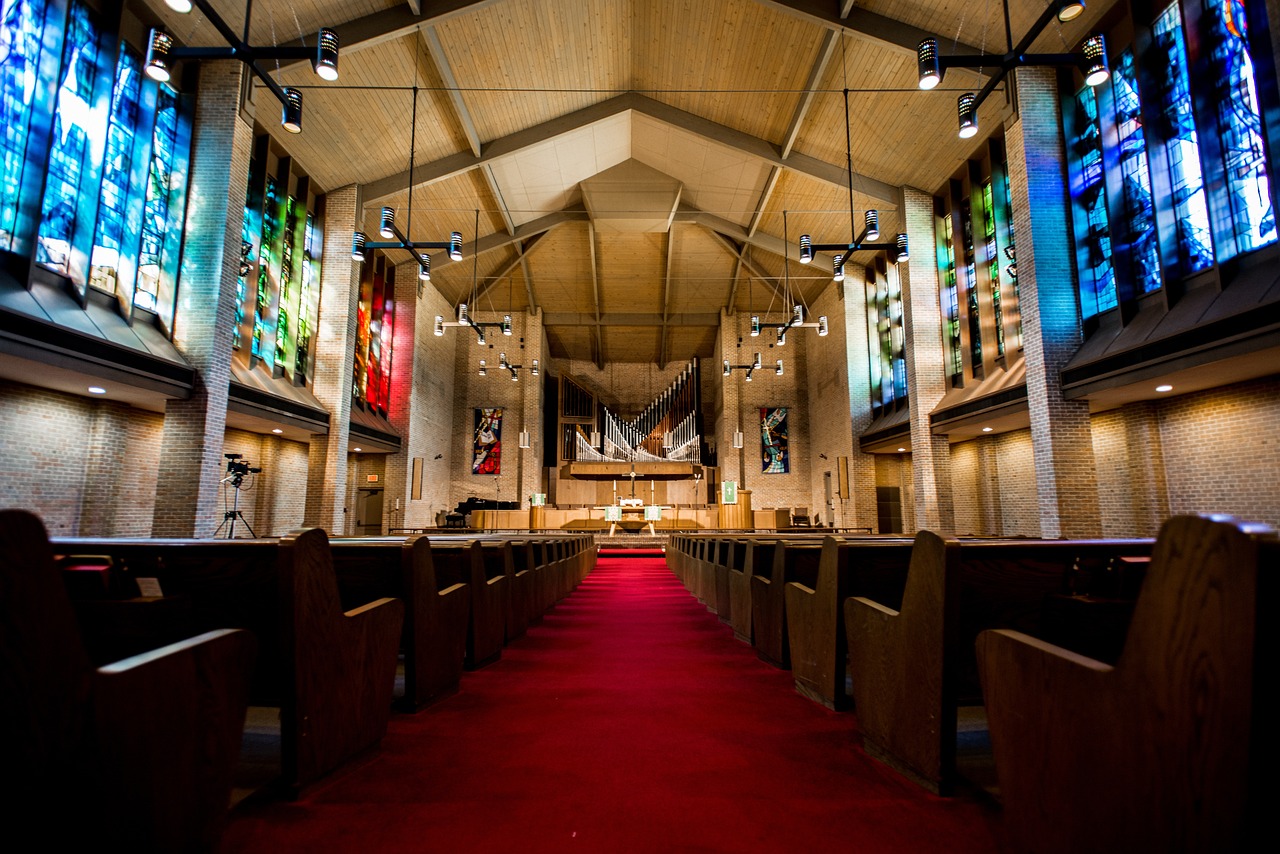Church cleaning is a vital task that ensures a welcoming and hygienic environment for worshippers. A clean church not only reflects respect for the sacred space but also promotes the health and comfort of the congregation. This article will provide practical advice and insights for effective church cleaning in Minneapolis and beyond.
Table of Contents
Key takeaways:
- Regular cleaning schedules are crucial for maintaining a pristine church environment
- Different areas of the church require specific cleaning approaches
- Professional cleaning services can be beneficial for thorough and specialized cleaning
- Proper cleaning products and techniques are essential for preserving church fixtures and furnishings
- Volunteer involvement can help manage cleaning tasks and build community spirit
- Seasonal deep cleaning is important for addressing less frequent cleaning needs
The Importance of a Clean Church

A clean church is more than just aesthetically pleasing – it’s a reflection of the care and respect shown to both the place of worship and its congregation. In Minneapolis, where churches play a significant role in community life, maintaining a spotless sanctuary is particularly important. Clean spaces encourage attendance, create a positive impression on visitors, and provide a comfortable environment for prayer and reflection.
Creating an Effective Cleaning Schedule
Developing a comprehensive cleaning schedule is the foundation of successful church maintenance. This schedule should cover daily, weekly, and monthly tasks to ensure all areas receive appropriate attention.
Daily cleaning tasks
Daily cleaning focuses on high-traffic areas and frequently touched surfaces. These tasks might include:
- Vacuuming entryways and main aisles
- Wiping down door handles and light switches
- Emptying trash bins
- Spot-cleaning visible spills or stains
Weekly cleaning duties
Weekly cleaning involves more thorough attention to all areas of the church. Some weekly tasks may include:
- Dusting pews, windowsills, and other surfaces
- Mopping hard floors
- Cleaning bathrooms thoroughly
- Vacuuming carpeted areas comprehensively
Monthly deep cleaning
Monthly cleaning addresses less frequent but equally important tasks:
- Polishing brass or silver fixtures
- Cleaning light fixtures and ceiling fans
- Washing windows
- Shampooing carpets
Tackling Specific Church Areas
Each area of a church has unique cleaning needs. Let’s break down the approach for different spaces. The main worship area, such as the sanctuary or nave, requires regular dusting and mopping to maintain a clean and welcoming space for congregants. Essential care tips include using gentle cleaners on intricate woodwork and regularly vacuuming and shampooing carpets to keep them looking and smelling fresh. Additionally, the nursery and childcare areas need regular sanitization and toy cleaning to reduce the spread of germs among the young attendees. Essential care tips for these spaces include using non-toxic cleaners and disinfectants and regularly inspecting toys for wear and tear.
Sanctuary cleaning
The sanctuary is the heart of the church and requires special care. When cleaning this area:
- Use gentle, non-abrasive cleaners on wooden pews
- Carefully dust and clean altars and pulpits
- Vacuum or sweep between pews, paying attention to hymnbook holders
- Clean and polish any brass or silver items
Entryway and narthex maintenance
First impressions matter, making the entryway a critical area for cleaning:
- Regularly clean and polish entrance doors
- Maintain a clean welcome mat or rug
- Ensure literature racks and bulletin boards are tidy
- Keep any flower arrangements fresh and clean
Bathroom sanitation
Church bathrooms should be cleaned daily, with attention to:
- Disinfecting all surfaces, including sinks, toilets, and door handles
- Restocking paper products and soap
- Mopping floors with a disinfectant solution
- Checking and cleaning mirrors
Fellowship hall upkeep
The fellowship hall, often used for gatherings and events, requires regular attention:
- Clean and sanitize tables and chairs after use
- Sweep and mop floors, paying extra attention after food-related events
- Keep kitchen areas, if present, spotless and organized
- Ensure proper waste management and recycling practices
Cleaning Products and Equipment

Using the right cleaning products and equipment is crucial for effective and safe church cleaning.
Eco-friendly cleaning solutions
Many churches in Minneapolis are adopting eco-friendly cleaning practices. Consider using:
- Plant-based, biodegradable all-purpose cleaners
- Vinegar and water solutions for glass cleaning
- Baking soda for gentle scrubbing
- Essential oil-based disinfectants
Specialized cleaning tools
Invest in quality cleaning tools designed for church environments:
- Microfiber cloths for dusting without scratching surfaces
- Extendable dusters for high ceilings and hard-to-reach areas
- HEPA filter vacuums to improve air quality
- Steam cleaners for deep cleaning upholstery and carpets
Preserving Church Artifacts and Furniture
Churches often contain valuable artifacts and antique furniture that require special care.
Cleaning historical items
When dealing with historical items:
- Consult with a conservation expert for proper cleaning methods
- Use soft brushes and gentle air blowers to remove dust
- Avoid using water or cleaning solutions without expert advice
Maintaining wooden furniture
To preserve wooden furniture:
- Use a mild soap solution for cleaning, avoiding excess water
- Apply furniture polish sparingly to protect the wood
- Address scratches or damage promptly to prevent deterioration
Seasonal Cleaning Considerations

Seasonal changes in Minneapolis bring different cleaning challenges for churches.
Winter cleaning tips
During snowy Minneapolis winters:
- Increase entryway cleaning to manage salt and slush tracking
- Check heating vents and radiators for dust accumulation
- Pay extra attention to floor mats and runners
Spring cleaning focus
As spring arrives:
- Deep clean carpets and upholstery
- Wash windows inside and out
- Clean outdoor areas, including sidewalks and parking lots
Volunteer Involvement in Church Cleaning
Engaging volunteers in cleaning efforts can be both practical and community-building.
Organizing cleaning teams
To effectively organize volunteer cleaning:
- Create a sign-up system for different tasks
- Provide clear instructions and cleaning checklists
- Offer training sessions on proper cleaning techniques
Fostering a sense of ownership
Encourage volunteers to take pride in their church’s cleanliness:
- Recognize and appreciate volunteer efforts
- Share the impact of their work on the church community
- Create a positive and social atmosphere around cleaning events
Professional Cleaning Services for Churches
While volunteer efforts are valuable, professional cleaning services can provide specialized expertise.
Benefits of professional cleaners
Professional church cleaning services offer:
- Consistent, high-quality results
- Knowledge of proper techniques for delicate items
- Time-saving for church staff and volunteers
- Access to industrial-grade equipment and products
Choosing a church cleaning service
When selecting a professional service in Minneapolis:
- Look for companies with experience in cleaning religious spaces
- Check references and reviews from other local churches
- Ensure they use appropriate, safe cleaning products
- Discuss customization options for your church’s specific needs
Health and Safety in Church Cleaning
Maintaining a clean church is also about ensuring a healthy environment for all who enter.
Addressing allergens and air quality
To improve air quality and reduce allergens:
- Use HEPA filter vacuums regularly
- Clean or replace HVAC filters as recommended
- Consider using air purifiers in smaller rooms
Proper handling of cleaning chemicals
Safety when using cleaning products is paramount:
- Store chemicals in a secure, well-ventilated area
- Provide proper protective equipment for cleaners
- Follow all manufacturer instructions for dilution and use
Technology in Church Cleaning
Modern technology can enhance church cleaning efforts.
Cleaning management software
Consider using software to:
- Schedule and track cleaning tasks
- Manage inventory of cleaning supplies
- Coordinate volunteer efforts
High-tech cleaning equipment
Explore advanced cleaning technologies:
- Electrostatic sprayers for efficient disinfection
- Robotic vacuum cleaners for large, open areas
- UV-C light sanitizers for keyboards and electronics
Sustainable Cleaning Practices
Many Minneapolis churches are adopting sustainable cleaning practices.
Reducing water usage
To conserve water:
- Use microfiber mops that require less water
- Fix leaky faucets promptly
- Consider installing low-flow fixtures in bathrooms
Minimizing chemical use
Reduce reliance on harsh chemicals by:
- Using steam cleaning for deep sanitation
- Opting for concentrated products to reduce packaging waste
- Exploring non-toxic, natural cleaning alternatives
Cleaning for Special Events
Churches often host special events that require additional cleaning considerations.
Pre-event preparation
Before major events:
- Deep clean all areas guests will access
- Pay extra attention to bathrooms and kitchen facilities
- Ensure adequate supplies of hand soap and paper products
Post-event cleanup
After events:
- Address any spills or stains immediately
- Properly dispose of or recycle event waste
- Return all areas to their standard clean state
Adapting Cleaning Practices for Different Church Sizes
Cleaning needs vary based on church size and attendance.
Small church cleaning strategies
For smaller churches:
- Create a rotating schedule among congregation members
- Focus on high-impact areas if time is limited
- Combine cleaning with other church activities to increase participation
Large church maintenance plans
Larger churches may need to:
- Employ a dedicated cleaning staff
- Use zone cleaning methods to manage large spaces efficiently
- Implement a ticketing system for reporting cleaning needs
Cleaning Challenges Unique to Historic Churches
Many Minneapolis churches are historic buildings with specific cleaning needs.
Preserving architectural features
When cleaning historic churches:
- Use gentle cleaning methods on ornate woodwork and stonework
- Avoid pressure washing or harsh chemicals on exterior surfaces
- Consult with preservation experts for best practices
Dealing with older building materials
Older buildings may require special attention to:
- Lead paint safety in pre-1978 structures
- Asbestos management in flooring or insulation
- Mold prevention in areas prone to moisture
The Role of Cleaning in Church Hospitality
A clean church is an essential part of welcoming visitors and members alike.
Creating a welcoming atmosphere
To enhance hospitality through cleanliness:
- Ensure entrances and gathering areas are spotless
- Maintain fresh, clean restrooms at all times
- Keep children’s areas particularly clean and sanitized
Addressing visitor perceptions
Remember that cleanliness affects visitor impressions:
- Pay attention to details like clean windows and dust-free surfaces
- Ensure all areas, including less-used spaces, are well-maintained
- Address any unpleasant odors promptly
Seasonal cleaning checklist
Here’s a seasonal cleaning checklist to help churches stay on top of cleaning tasks throughout the year:
- Spring: Deep clean carpets, wash windows, clean outdoor areas
- Summer: Clean air conditioning vents, power wash exterior, maintain landscaping
- Fall: Clean gutters, check heating systems, deep clean before holiday season
- Winter: Increase entryway cleaning, check for drafts, maintain snow and ice removal
Cleaning product comparison table
| Product Type | Pros | Cons | Best For |
|---|---|---|---|
| All-purpose cleaner | Versatile, cost-effective | May not be specialized enough for all tasks | General cleaning |
| Disinfectant | Kills germs and bacteria | Can be harsh on some surfaces | Bathrooms, high-touch areas |
| Glass cleaner | Streak-free shine | Limited use | Windows, mirrors |
| Wood polish | Protects and beautifies wood | Can build up over time | Wooden pews, furniture |
| Carpet shampoo | Deep cleans fibers | Requires special equipment | Annual carpet cleaning |
Church Cleaning Budget Considerations
| Expense Category | Estimated Annual Cost | Notes |
|---|---|---|
| Cleaning supplies | $1,000 – $3,000 | Varies based on church size |
| Equipment | $500 – $2,000 | Initial investment with periodic replacements |
| Professional services | $5,000 – $15,000 | For specialized or deep cleaning |
| Volunteer support | $200 – $500 | For training and appreciation |
| Eco-friendly initiatives | $500 – $1,500 | Investment in sustainable practices |
Conclusion
Church cleaning is a multifaceted task that requires dedication, planning, and the right approach. By implementing a comprehensive cleaning strategy, using appropriate products and techniques, and engaging both volunteers and professionals, churches in Minneapolis can maintain a welcoming, healthy, and reverent environment for worship and community gatherings. Remember that a clean church is not just about appearance – it’s a reflection of the care and respect shown to both the sacred space and its congregation.
- Frequency: Regular church cleaning is recommended at least once a week, according to the National Council of Churches.
- Dusting: Dusting should be done weekly using a microfiber cloth or feather duster to avoid damaging delicate surfaces.
- Floors: Hard floors should be swept or dust-mopped daily, and wet-mopped weekly with a pH-neutral cleaner.
- Carpets: Carpets should be vacuumed weekly, and deep-cleaned every 12 to 18 months.
- Windows: Windows should be cleaned inside and out every 3 to 6 months, using a soft cloth and a mild cleaning solution.
- Sanitizing: High-touch areas such as door handles, pews, and bathroom fixtures should be sanitized daily using an EPA-registered disinfectant.
- Water Damage: Water damage can lead to mold growth and should be addressed immediately.
Discover effective Church Cleaning strategies for Minneapolis sanctuaries. Learn tips on maintaining and preserving sacred spaces for worship. For more information, you can visit our website or contact us.

